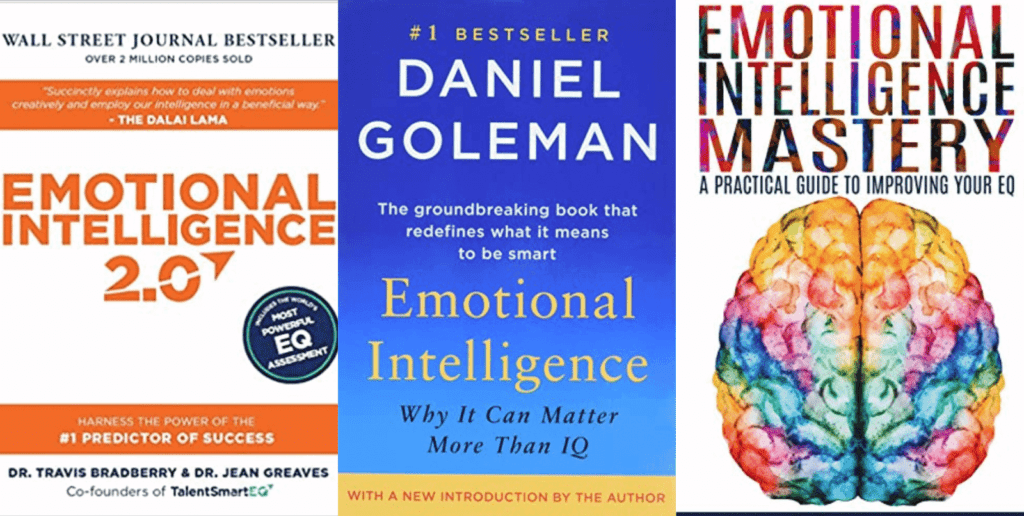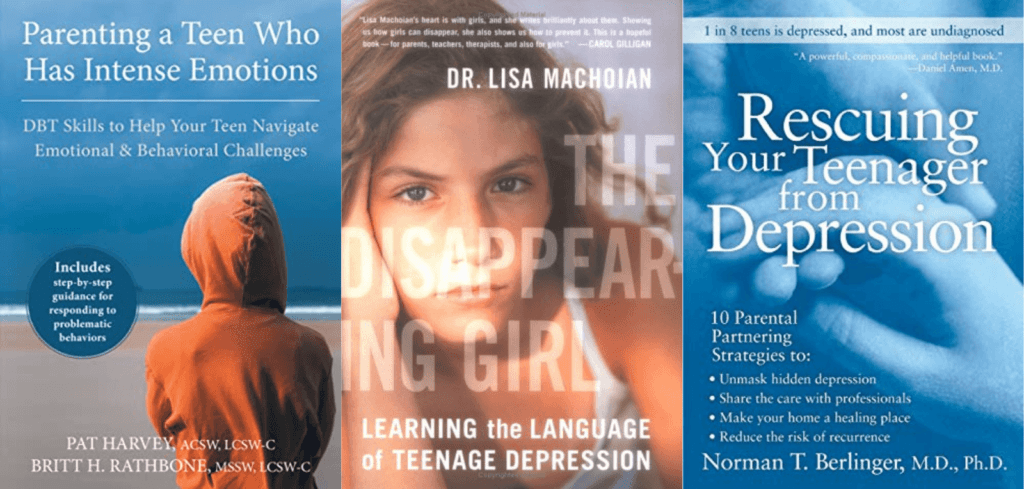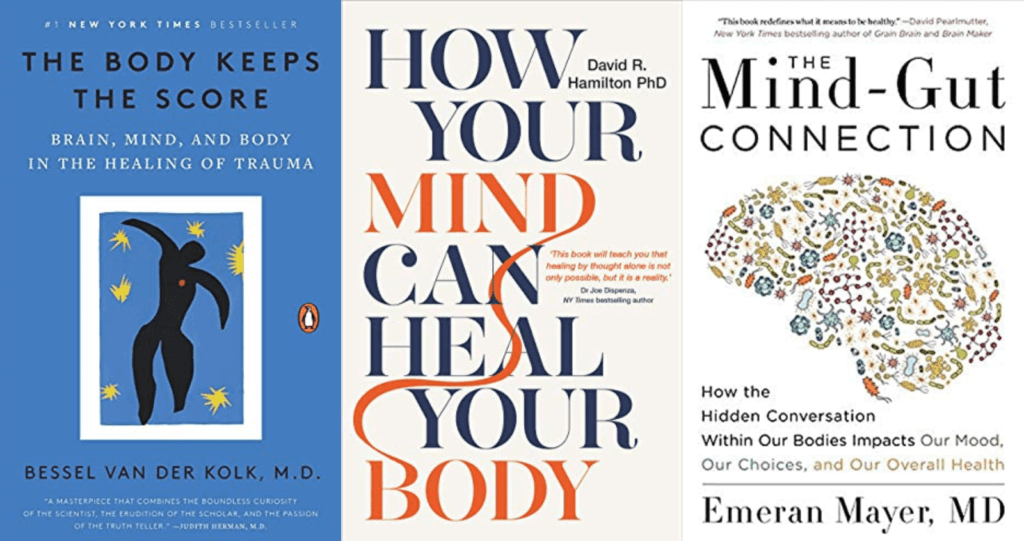The following are some of the best emotional intelligence books to help you on your recovery journey.
Disclosure: Some of the links below are affiliate links. This means that, at zero cost to you, I will earn an affiliate commission if you click through the link and finalize a purchase.
What Is Emotional Intelligence?
Emotional Intelligence (EI) refers to the ability to recognize, understand, and manage one’s own emotions, as well as the emotions of others.
It involves being aware of and effectively regulating emotions in oneself and in interpersonal relationships.
EI encompasses a range of skills and competencies that contribute to emotional well-being, effective communication, empathy, and successful social interactions.
Developing emotional intelligence can have several benefits, including:
– Enhanced self-awareness and understanding of one’s emotions.
– Improved emotional regulation and ability to manage stress.
– Better interpersonal relationships and communication.
– Increased empathy and understanding of others’ perspectives.
– Improved decision-making and problem-solving skills.
– Enhanced leadership abilities.
– Higher levels of job satisfaction and performance.
There are various strategies and techniques, such as mindfulness practices, cognitive-behavioral therapy, and social skills training, that can help individuals develop and strengthen their emotional intelligence.
Emotional Intelligence Books
1. Emotional Intelligence 2.0
By Travis Bradberry, Jean Greaves
Emotional Intelligence 2.0 delivers a step-by-step program for increasing your EQ via four, core EQ skills that enable you to achieve your fullest potential:
1) Self-Awareness
2) Self-Management
3) Social Awareness
4) Relationship Management
Related: Top 19 Emotional Intelligence Activities (To Improve Low Emotional Intelligence)
2. Emotional Intelligence
By Daniel Goleman
Drawing on groundbreaking brain and behavioral research, Goleman shows the factors at work when people of high IQ flounder and those of modest IQ do surprisingly well. These factors, which include self-awareness, self-discipline, and empathy, add up to a different way of being smart—and they aren’t fixed at birth. Although shaped by childhood experiences, emotional intelligence can be nurtured and strengthened throughout our adulthood—with immediate benefits to our health, our relationships, and our work.
Related: Best 99 Coping Skills (+FREE Coping Worksheets)
3. Emotional Intelligence
By Brandon Goleman
Through this book you will:
- Understand How Emotional Intelligence can help you make a positive impact both at work and in your personal life
- Learn Which Are The Core Emotions and learn how to read other people
- Be Able to Better Define Your Personal Values and never stress out when taking a decision or approaching a particular situation
- Find Out How To Influence Others and get what you want without looking like a manipulative person
- Build Meaningful and Lasting Relationships based on mutual respect, empathy and trust
Related: How To Feel Your Feelings? Top 9 Difficult Emotions To Cope With In Healthy Ways
4. Permission to Feel
By Marc Brackett
Marc Brackett is a professor in Yale University’s Child Study Center and founding director of the Yale Center for Emotional Intelligence. In his 25 years as an emotion scientist, he has developed a remarkably effective plan to improve the lives of children and adults – a blueprint for understanding our emotions and using them wisely so that they help, rather than hinder, our success and well-being.
Related: Top 21 Emotional Writing Prompts To Process Emotions
5. Working with Emotional Intelligence
By Daniel Goleman
Drawing on unparalleled access to business leaders around the world and studies in more than 500 organizations, Goleman documents an astonishing fact: in determining star performance in every field, emotional intelligence matters twice as much as IQ or technical expertise.
Readers also discover how emotional competence can be learned. Goleman analyzes five key sets of skills and vividly shows how they determine who is hired and who is fired in the top corporations in the world.
Related: The Difference Between Pain And Suffering (+Top 4 Tips On How To Embrace Pain & Stop Suffering)
6. Emotional Intelligence For Dummies
By Steven J. Stein
Full of lively anecdotes and practical advice, Emotional Intelligence For Dummies is the ideal book for anyone who wants to get smart about their feelings and reach the next level at work and at home.
- Manage your emotions – identify your feelings, determine what beliefs cause negative emotions, and stop self-destructive behaviors
- Discover the power of empathy – read other people’s emotions through facial cues and body language and show them you understand their feelings
- Thrive at work – find a job that’s right for you, overcome hassles and fears, and develop your leadership skills
- Build and sustain meaningful relationships – discover how to take your partner’s emotional temperature and manage emotions to grow closer
- Raise an emotionally intelligent child – keep your cool with your child, coax shy children out of their shells, and get your child to be less aggressive and defiant
Related: Alexithymia Test (+ Top 5 Tips On Coping With Alexithymia)
7. Emotional Intelligence in the Workplace
By Mark Craemer
Emotional Intelligence in the Workplace includes:
- The power of connection—Learn why emotional intelligence is so critical for collaboration and success, along with easy ways to practice self-awareness, develop flexibility, read a room, and more.
- Real-world examples—Find anecdotes and example scenarios that show you the techniques in action and explain how they help build reputation and trust.
- Ways to grow and thrive—Discover how increased emotional intelligence opens doors for new opportunities and career advancement.
Related: Negative Core Beliefs List (& 8 Tips On How To Challenge Them)
8. The Emotional Intelligence Activity Kit
By Adele Lynn, Janele Lynn
The Emotional Intelligence Activity Kit shows the way with 50 practical exercises to:
- Promote introspection
- Increase empathy
- Improve social skills
- Boost influence
- Inspire purpose
- Bring everyone on board

How Emotional Intelligence Books Can Help?
Emotional intelligence books can be incredibly helpful in developing and enhancing your emotional intelligence skills.
They offer a wealth of knowledge, insights, and practical strategies that can assist you in improving your self-awareness, self-regulation, empathy, social skills, and overall emotional well-being.
Here are a few ways in which emotional intelligence books can benefit you:
1. Increasing self-awareness
Books on emotional intelligence often provide exercises, assessments, and reflective prompts that help you gain a deeper understanding of your own emotions, thought patterns, and behaviors.
By learning to recognize and label your emotions, you can better understand their underlying causes and learn to manage them effectively.
2. Learning practical strategies
Emotional intelligence books offer a range of evidence-based techniques for handling stress, managing negative emotions, and improving communication.
These strategies may include mindfulness exercises, cognitive restructuring techniques, and tips for building healthier relationships.
By applying these strategies, you can develop practical skills that contribute to your emotional well-being.
Related: Top 9 Highly Sensitive Person Coping Strategies [HSP’s Survival Guide]
3. Gaining new perspectives
Emotional intelligence books often explore different perspectives and experiences, helping you develop empathy and a richer understanding of others.
By reading about diverse situations and individuals, you can expand your worldview and enhance your ability to connect with and understand people from various backgrounds.
4. Improving interpersonal relationships
Emotional intelligence books provide insights into effective communication, conflict resolution, and building stronger relationships.
By learning how to express yourself clearly, actively listen, and understand others’ emotions, you can improve the quality of your interactions and develop healthier, more fulfilling relationships.
Related: Best 8 Mindfulness Exercises For Adults That Will Help You Regulate Your Emotions
5. Inspiring personal growth
Emotional intelligence books often include inspiring stories, real-life examples, and anecdotes that can motivate and encourage personal growth.
They can help you cultivate a growth mindset, set meaningful goals, and overcome obstacles on your journey towards emotional intelligence.
Conclusion
While books offer valuable information, their effectiveness ultimately depends on your willingness to apply what you learn in real-life situations.











